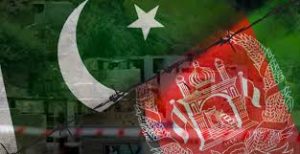Qatar, Israel & the U.S.: Alleged Strike, Diplomatic Balancing, and What Comes Next
Reports of an alleged attack raise tough questions about alliances, neutrality, and regional stability.
Reporting note: This article discusses early reports and political reactions. We could not verify live sources in this article — please also confirmed from resources (major outlets or official statements).
Recent reports of an alleged strike linked to Israel inside Qatari territory have put a spotlight on an uncomfortable reality of modern geopolitics: small states attempting delicate balancing acts amid great-power partnerships. Beyond the incident itself, questions swirl about the role of the United States, Doha’s diplomatic posture, and what such events mean for regional stability.
What the reports say (alleged)
According to initial, unverified accounts circulating on social platforms and early news wires, an explosion/strike occurred near [LOCATION]. Authorities and international observers are still assessing responsibility. For clarity and accuracy, rely on official statements and major news organizations before treating any report as definitive.
Why Qatar’s diplomatic balancing act matters
Qatar has long walked a fine line in regional politics: it hosts American military assets and maintains security ties with the West, while also cultivating relationships across the Middle East and hosting diplomatic channels for regional conflicts. That mixture enables Doha to act as a mediator in many disputes — but it can also make Qatar vulnerable to criticism when tensions spike.
Hosting U.S. facilities vs maintaining regional credibility
Hosting U.S. facilities provides security guarantees and strategic partnership benefits, but it can complicate perceptions at home and across the Arab and Muslim world — especially when incidents involve Israel. Governments must balance practical security needs with public sentiment and sovereign diplomacy.
How U.S. support of Israel adds pressure
The United States’ longstanding security and diplomatic support for Israel shapes regional dynamics. When allegations surface that Israel conducted operations beyond its borders, questions naturally arise about Washington’s knowledge, tacit approval, or operational cooperation. Even if the U.S. is not directly involved, its alliance with Israel affects how regional states respond politically and rhetorically.
Diplomatic consequences and regional ripple effects
- Protests & public opinion: Popular sentiment in many countries can turn on perceived slights or security breaches.
- Diplomatic friction: Allies may call for explanations, briefings, or sanctions depending on the evidence and political calculus.
- Mediation roles challenged: Countries like Qatar that serve as mediators risk losing credibility if seen as too close to one side.
Domestic stakes for Qatar
Doha must navigate domestic public opinion, which often values solidarity with other Muslim-majority states, while also protecting national security and economic interests tied to international partners. A perceived alignment with one external power over another can create internal debate and political pressure.
Responsible reporting — verify before sharing
In sensitive situations involving allegations of strikes or cross-border operations, misinformation spreads quickly. Facts to check before posting: official statements from Qatar’s authorities, Israel’s defense ministry or government spokespeople, independent international monitors, and credible global news organizations. Avoid amplifying unconfirmed social posts.
Longer-term implications for the region
If confirmed, extraterritorial strikes would heighten tensions and could:
- Prompt stronger diplomatic protests and possible suspension of certain cooperation agreements.
- Undermine mediation channels and complicate peacemaking efforts.
- Increase the risk of retaliatory measures or escalation if grievances are not addressed diplomatically.
A pragmatic way forward
- Transparent investigation: Quick, transparent fact-finding with international observers to establish what happened.
- Diplomatic communication: High-level briefings between Doha, Washington, and regional capitals to avoid misunderstandings.
- Preserve mediation channels: Doha should reaffirm neutral mediation roles where possible, emphasizing humanitarian and conflict-resolution aims.
- Public reassurance: Clear messaging to domestic audiences to counter misinformation and reduce panic.
Final thoughts
Allegations of cross-border strikes immediately test diplomatic norms and regional trust. Small, strategically placed states like Qatar must balance security partnerships and regional credibility carefully. The role of powerful allies — and how much latitude they afford partners — will continue to shape outcomes. Most important now is careful verification, transparent diplomacy, and calm leadership to prevent escalation.
Follow credible updates & official statements from Al Jazeera like









